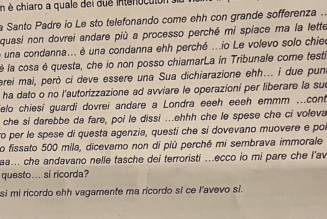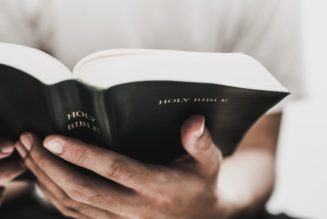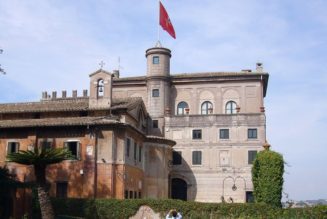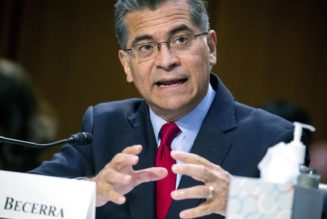“If the Bishop really cares about his faithful,” one commenter on YouTube wrote, “he’d put a stop to this abomination, not the Latin Mass.”
“I’m a former evangelical Protestant, who is now Catholic, and this service reminds me so much of the ones that I once attended as an evangelical Protestant for many years,” another post reads. “I’m both shocked and horrified that this claims to be Catholic, Lord have mercy! No focus on the Blessed Sacrament at all.”
“The Latin Mass? No. This, Yes,” conservative Catholic commentator Taylor Marshall said sarcastically in a Dec. 29 podcast live streamed on YouTube. “It’s not fair.”
Focus should be on the Eucharist
The archdiocese’s new policy on the Traditional Latin Mass comes in response to Pope Francis’ motu proprio Traditiones custodes, released July 16, and a related explanatory document the Vatican published Dec. 18. Together, those documents place strict curbs on the use of Latin liturgical texts that pre-date Vatican II, which a small minority of Catholics still prefer.
The pope lamented the prevalence of liturgical abuses in a letter accompanying his motu proprio.
“I am saddened by abuses in the celebration of the liturgy on all sides,” he wrote in the letter. “In common with Benedict XVI, I deplore the fact that ‘in many places the prescriptions of the new Missal are not observed in celebration, but indeed come to be interpreted as an authorization for or even a requirement of creativity, which leads to almost unbearable distortions.’”
A leading Catholic liturgist contacted by CNA said he was reminded of the pope’s words while he was viewing the video of St. Sabina’s Christmas Eve Mass.
“Many of the abuses in the celebration of the Mass come from a wrong understanding of the nature and good of the Eucharistic celebration, and particularly from a distorted application of the concept of active participation in the liturgy,” Father Daniel Cardó, Benedict XVI Chair of Liturgical Studies at St. John Vianney Theological Seminary in Denver, observed in a written commentary he shared with CNA.
“The Second Vatican Council called the Church to promote a ‘full, conscious and active participation in liturgical celebrations.’ (Sacrosanctum Concilium, 14). The irony is that when activities foreign to the liturgical celebrations are inserted in the Mass, actual participation does not grow — most people remain spectators of dances or other cultural expressions, which cannot be performed by everyone,” he continued.
“The dances, songs, speeches, and light effects show a lively celebration of a Christian community, but not the Eucharist as described and celebrated uninterruptedly since the beginnings, as already perceived in the passage of the disciples going to Emmaus (Lk 24:13-35) or in the descriptions of St. Justin (mid-second century),” Cardó observed.
“What the Church wants for everyone is participation in the rites themselves, and for this, we have a safe path: the approved rites and rubrics of the liturgical celebrations.”
Cardó stopped short of saying that the St. Sabina liturgy was not a valid Mass, as some have alleged on social media. Pfleger uses the proper words of consecration during the Eucharistic Prayer, he noted.
Instead, Cardó said such liturgies risk overshadowing the Eucharist as the central focus of the Mass.
“When so much novelty and creativity take place in the celebration of the Mass, the community can grow in self-expression and human comfort, but might lose the ‘real presence’ of Jesus Christ, certainly less spectacular than concerts and choreographies, but the awe-inspiring power of God made man, of God becoming present in bread and wine,” he said.
“There is no greater pastoral good for the faithful than simply to allow God to come to his people through the rites of the Church. The relative good of self-expression of a given community can never be equal to the supreme good of receiving Christ himself in the Sacrament,” Cardó continued.
“Bethlehem reminds us that God chooses the simplicity of what’s hidden to the world to become present. In the same way, Jesus comes to the world at Mass through the simplicity of a few words and gestures, given to the apostles and faithfully transmitted by the Church,” he stated. “When creativity leads to abuses and distortions, then we are very far from the liturgical reform intended by the Second Vatican Council.”
CNA correspondent Joe Bukuras contributed to this story.
Join Our Telegram Group : Salvation & Prosperity





